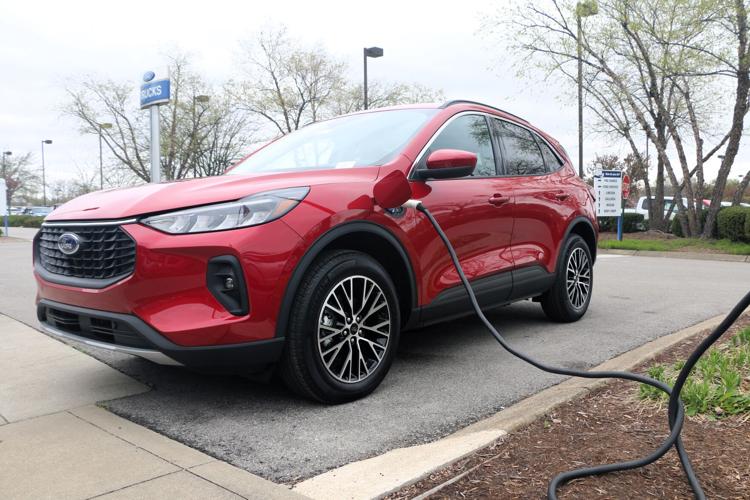LOUISVILLE, Ky. (WDRB) -- Kentucky will exempt many publicly available electric vehicle chargers from a new usage tax that would have made it more expensive and complicated for community groups like churches and libraries to offer free EV charging.
The exemption of lower-capacity chargers from a new tax on EV electricity was folded into a last-minute "cleanup" bill addressing technical issues that passed the House and Senate on Monday, the final day of the 2024 legislative session.
Complying with the tax "created so much extra work that people who had these chargers were starting to shut them down," said Lane Boldman of the Kentucky Conservation Committee, which lobbied on behalf of environmental groups for the change.
Kentucky will still collect a tax of $0.03 per kilowatt hour on electricity dispensed from high-capacity chargers such as those at Tesla Supercharger sites and the federally funded fast-charging stations the state is building along interstates and highways, Boldman said.
The new language exempts slower chargers often installed in neighborhood gathering places such as parks, churches, YMCAs, libraries and store parking lots.
The tax would have required those community groups to keep track of the electricity dispensed from their plugs even though the chargers do not have separate meters. Then, they would have to remit payment for the tax to the state even though drivers typically do not pay for the electricity.
"These are places that ordinarily don't really pay tax. They were wanting to put (the chargers) up as convenience for their people, but they weren't prepared for this," said Rep. Thomas Huff, R-Shepherdsville, who sponsored a standalone bill containing the language that was eventually folded into the cleanup measure.
Huff added that the state would have collected a negligible amount of revenue from the community chargers, making the gains not worth the red tape.
"There was very low income on this," he said.
When WDRB examined the issue in 2023, Kentucky was one of seven states to adopt a tax on EV electricity.
Like 31 other states, Kentucky also charges EV and hybrid car owners additional annual registration taxes meant to compensate for their road usage. Those cars use less gas or none at all, and gas taxes are an important source of road funding. Owners of all-electric cars pay Kentucky an additional fee of $120 a year.
The idea behind the tax on EV electricity was to capture funding from out-of-state drivers on their way through Kentucky, just as anyone who fills up at a Kentucky gas station would pay gas taxes to the state, Sen. Jimmy Higdon, R-Lebanon, told WDRB last year. Higdon was also instrumental in this week's move to exempt the community chargers, Boldman said.
Meanwhile Kentucky, which will play a big role electric vehicle manufacturing, has started construction of about three-dozen fast charging sites along interstates and highways, using federal money from President Biden's 2021 Infrastructure Law.
While the state will be home to one of the world's largest EV battery manufacturing sites (Ford's BlueOval SK in Glendale) and to the manufacture of Toyota's first U.S.-made EV, Kentucky ranks 42nd among states in the prevalence of electric vehicles.
EVs made up 25% of the new car market in California in 2023 but about 3% in Kentucky, according to the Alliance for Automotive Innovation.
Huff, the Bullitt County lawmaker, is also a used car dealer. He doesn't sell EVs, but he said that may change someday. "If it's a good product, people will want to buy it," he said.
Huff added that he recently test drove a Tesla at an event for lawmakers at the state Capitol in Frankfort.
"It was the fastest car I've ever driven in my life," he said.



















